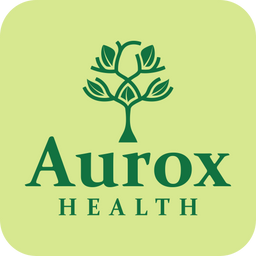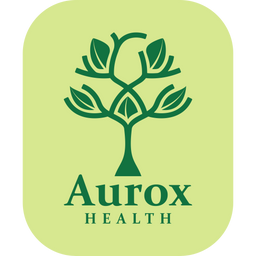Introduction: Understanding Gut Detoxification 🌱
Gut detoxification refers to the process of eliminating toxins and waste from the digestive system. Many people believe that detoxing their gut can lead to improved health and well-being. This belief has gained popularity in recent years, with various detox diets and cleanses becoming trendy. However, the topic of gut detoxification can be confusing, as many myths surround it. 🧐
The purpose of this article is to clarify these myths and present safe practices for gut cleansing. By understanding what gut detoxification truly involves, you can make informed decisions about your digestive health. We will explore common misconceptions and provide practical tips for promoting a healthy gut without resorting to extreme measures.
From the article you will learn about:
- Detox Myth #1: Detoxing the Gut is Necessary for Everyone
- Detox Myth #2: Gut Cleanses Provide Instant Weight Loss
- Detox Myth #3: All Detox Diets Are Safe and Effective
- Fact #1: A Healthy Gut is Crucial for Overall Well-Being
- Fact #2: Safe Detox Practices for Promoting Digestive Health
- Making Informed Choices for Gut Health
Detox Myth #1: Detoxing the Gut is Necessary for Everyone ❌
Many believe regular gut detoxing is essential for maintaining health, but this is a misconception. The body’s natural detox systems, mainly the liver and kidneys, already work efficiently to filter and eliminate toxins. The liver breaks down harmful substances, while the kidneys remove waste, keeping the body clean without needing additional interventions.
For most people, focusing on a balanced diet, staying hydrated 💧, and leading a healthy lifestyle is enough to support these natural detox processes. Regular gut detoxes are not necessary for everyone and may even cause harm if done too often or incorrectly.
Certain individuals should avoid detoxing their gut, including:
-
Pregnant or breastfeeding women 🤰 : Detox diets can be too restrictive and may not provide the necessary nutrients for both mother and child.
-
People with chronic health conditions 😷 : Those with liver or kidney diseases, diabetes, or gastrointestinal disorders should consult a healthcare professional before attempting any detox.
-
Individuals taking medications 💊 : Some detox methods may interact with medications, leading to adverse effects.
-
Children and adolescents 👧 : Their bodies are still developing, and restrictive diets can interfere with their growth and health.
For these individuals, it is best to focus on maintaining a balanced diet and healthy lifestyle rather than undertaking detox programs.
Detox Myth #2: Gut Cleanses Provide Instant Weight Loss ⚖️
Many believe gut cleanses lead to permanent weight loss, but this misconception stems from the quick results cleanses often show. Most of this early weight loss is due to water loss, not fat. When you restrict food intake, your body sheds water weight 💦, making the initial loss temporary. Once you return to regular eating habits, the lost weight often comes back.
Extreme cleanses can also lead to muscle loss, nutrient deficiencies, and a slowed metabolism, making long-term weight management more difficult. Rather than promoting fat loss, these cleanses may harm your body by depriving it of essential nutrients and reducing your overall muscle mass.
For sustainable weight management, it's better to focus on long-term lifestyle changes. A balanced diet, regular exercise, and proper hydration are far more effective than quick-fix cleanses. These habits not only help with weight management but also promote overall well-being and better gut health in the long run.
Read: Top 10 Natural Supplements for Effective Detoxification
Detox Myth #3: All Detox Diets Are Safe and Effective ⚠️
Many people think that all detox diets are safe and effective. However, this belief can lead to harmful practices. Some detox diets are extreme, eliminating entire food groups or severely restricting calorie intake. These types of diets can pose serious health risks and are often not sustainable.
Extreme detox diets can lead to:
-
Nutrient Deficiencies: Eliminating whole food groups may deprive the body of essential vitamins, minerals, and nutrients necessary for optimal health. This can lead to fatigue, weakened immune function, and other health issues.
-
Metabolic Slowdown: Severely restricting calories can cause the body to go into starvation mode, slowing down metabolism. This can make it harder to lose weight in the long term and may lead to weight gain once normal eating resumes.
-
Digestive Issues: Rapid changes in diet can disrupt the gut microbiome 🦠 and lead to digestive discomfort, bloating, and irregular bowel movements.
-
Mental Health Effects: Extreme diets can create an unhealthy relationship with food, leading to anxiety, stress, or even disordered eating patterns.
It is crucial to consult healthcare professionals before starting any detox program. 👨⚕️ A registered dietitian or nutritionist can help evaluate your health needs and suggest safe, evidence-based approaches to improving digestive health. They can guide you toward a balanced diet that supports your body’s natural detoxification processes without the risks associated with extreme detox diets.
Always prioritize your health and well-being over quick fixes. Sustainable lifestyle changes are the key to long-term health, rather than short-term detox plans.
Fact #1: A Healthy Gut is Crucial for Overall Well-Being 🌟
Gut health plays a vital role in various aspects of our overall well-being. A well-functioning digestive system is essential for breaking down food, absorbing nutrients, and eliminating waste. When the gut is healthy, it can support multiple bodily functions, including:
-
Digestion: A healthy gut microbiome helps break down complex carbohydrates, fibers, and proteins, ensuring your body gets the nutrients it needs. Proper digestion also prevents discomfort such as bloating and gas.
-
Immunity: About 70% of the immune system resides in the gut. A balanced gut microbiome helps defend against harmful pathogens and supports the body’s immune response. Good gut health can reduce the risk of infections and chronic diseases.
-
Mental Health: The gut-brain connection plays a significant role in mental health. 🧠 Neurotransmitters like serotonin, which affects mood, are largely produced in the gut. A healthy gut can improve mood, reduce anxiety, and enhance cognitive function.
Maintaining a balanced gut microbiome is essential for supporting overall well-being. This balance can be influenced by diet, lifestyle, and environment. Consuming a variety of fiber-rich foods, fermented foods, and prebiotics can help nourish beneficial gut bacteria. Avoiding excessive sugar and processed foods can also prevent harmful bacteria from flourishing.
By prioritizing gut health, you can promote better digestion, enhance immunity, and support your mental health. Remember that a healthy gut contributes significantly to your overall quality of life.
Read: Detox for Weight Loss: Supplements to Kickstart Your Journey
Fact #2: Safe Detox Practices for Promoting Digestive Health 🥗💧
Promoting digestive health is essential for maintaining a well-functioning gut and overall well-being. Here are some safe practices to support gut health:
-
Incorporate Fiber-Rich Foods:
-
Eating a variety of fiber-rich foods, such as fruits, vegetables 🥬, whole grains, and legumes, helps nourish beneficial gut bacteria. Fiber aids digestion and promotes regular bowel movements, reducing the risk of constipation.
-
-
Stay Hydrated:
-
Drinking enough water is vital for digestion and helps dissolve nutrients for absorption. Proper hydration also supports the movement of food through the digestive tract, preventing discomfort and bloating.
-
-
Consider Supplements:
-
If you struggle to get enough nutrients from food alone, dietary supplements can help fill the gaps. Look for options that are well-researched and suitable for your needs, such as multivitamins or specific nutrients.
-
-
Use Probiotics and Prebiotics:
-
Probiotics are live beneficial bacteria that can improve gut health, while prebiotics are non-digestible fibers that feed these bacteria. Include sources of probiotics, such as yogurt, kefir, and fermented foods, and consume prebiotic foods like bananas 🍌, onions 🧅 , and garlic 🧄 to support a balanced microbiome.
-
-
Gradually Introduce Gentle Cleansing Practices:
-
Instead of extreme detox diets, consider gentle cleansing methods like herbal teas 🍵 or moderate fasting. Herbal teas, such as ginger or peppermint, can soothe the digestive system, while moderate fasting can give your gut a break without causing harm.
-
-
Practice Mindful Eating:
-
Eating slowly and paying attention to hunger cues can improve digestion. Mindful eating helps prevent overeating and allows your body to signal when it's full, contributing to better gut health.
-
-
Manage Stress:
-
Chronic stress can negatively affect gut health. Incorporate stress-reducing activities into your routine, such as yoga, meditation 🧘 , or regular exercise 🏋️♂️ , to promote a healthy gut.
-
By adopting these safe practices, you can support your digestive health and enhance your overall well-being. Remember, consistency is key to maintaining a healthy gut!
Conclusion: Making Informed Choices for Gut Health 🌱
In this article, we debunked myths about gut detoxification, clarifying that regular detoxing isn’t necessary for everyone and extreme diets aren't a safe way to lose weight. We also highlighted the importance of gut health for digestion, immunity, and mental well-being.
Supporting gut health involves safe practices like eating fiber-rich foods, staying hydrated, and using probiotics. Gentle cleansing and stress management also help maintain a balanced gut microbiome.
For lasting gut health, focus on sustainable habits and consult a healthcare professional for personalized advice. Explore our range of supplements designed to support your digestive health today!






